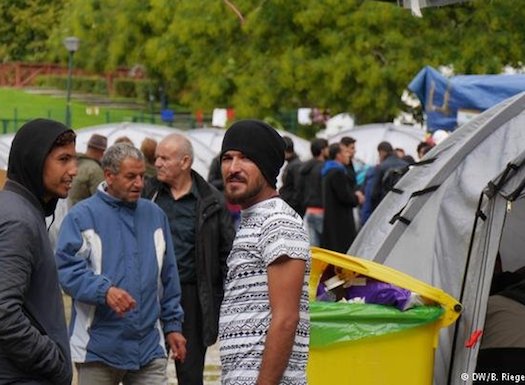“Not all changes in media are about technology, they can also be about geopolitics,” said France Medias Monde’s John Maguire, speaking at a Media2020 conference session on diversity and tolerance.
The refugee migrant situation is a case in point. Given the political sensitivities in Europe about the migrant situation, his organisation decided to “develop a strategy to deliver good education and information to migrants.”
France Medias Monde, DW Germany and ANSA Italy aligned to work out a good strategy to help displaced people. “We found that almost all the displaced people had mobile phones, and they all needed informaton relevant to them, so we initiated a website information serivce for them.”
The result was www.infomigrants.net.
“People have the right to have information about what structures are available to them when they reach the host country, so we wanted to provide that for them,” said Maguire.
In the same session, RAI Italy’s Simona Martorelli quoted studies showing that public service media plays a big role in achieving social cohesion.
“To have a free and independent public service media is important for a healthy democracy and social cohesion. The public service media core values of excellence, innovation, accountability contribute to that,” she said.
The Italian public broadcaster has identified some key social priorities in Italy: migration, gender balance, physical and mental disabilities, and it is prioritising coverage of these issues in its programming.
“No one would go on a dangerous boat unless the risks of the sea seemed safer than the land that they came from. We have tried to foster a discussion about the refugee crisis, with the message that together we are much stronger, more alive and free,” said Martorelli.
Iranian broadcaster and academic Mohammed Hossein Tamjidi told the story of IRIB’s Kindness Wall campaign as another example of broadcasters promoting diversity and tolerance.
The Iranian national broadcaster’s radio channels arranged a series of clothing hooks to be fitted to a wall in Tehran. Listeners who had spare clothes to share with people could hang them on that wall, and people in need could anonymously come along and just take what they needed.
Another successful campaign for tolerance was the Lebanese national broadcaster’s approach to the huge number of refugees flooding into that country from war-torn Syria and Iraq. The ‘we will come and visit you’ campaign is remarkable in its message of reciprocal tolerance and acceptance.
Refugees flooding into Lebanon have been welcomed and housed in the spirit of hospitality that is so stonrg in the middle east, but there is a clear message that they should not stay forever.
The campaign, aired on the national broadcaster, aims to minimise fears in the Lebanese population that the refugees will remain in the country, while still promoting the need for them to be looked after while they are not able to return home. It was a campaign to combat hate speech but to reinforce the message that the refugees should one day go home.
“You are welcome to visit us, but we will come and visit you in your home some day soon,” said the campaign, which calmed the population of Lebanon about refugees and gave the refugees the challenge to go back home and be ready to invite the people who helped them when they were in need once they got back to their own homes.
See other reports from the Media2020 and PBI Conference by clicking the Conference tag below.

